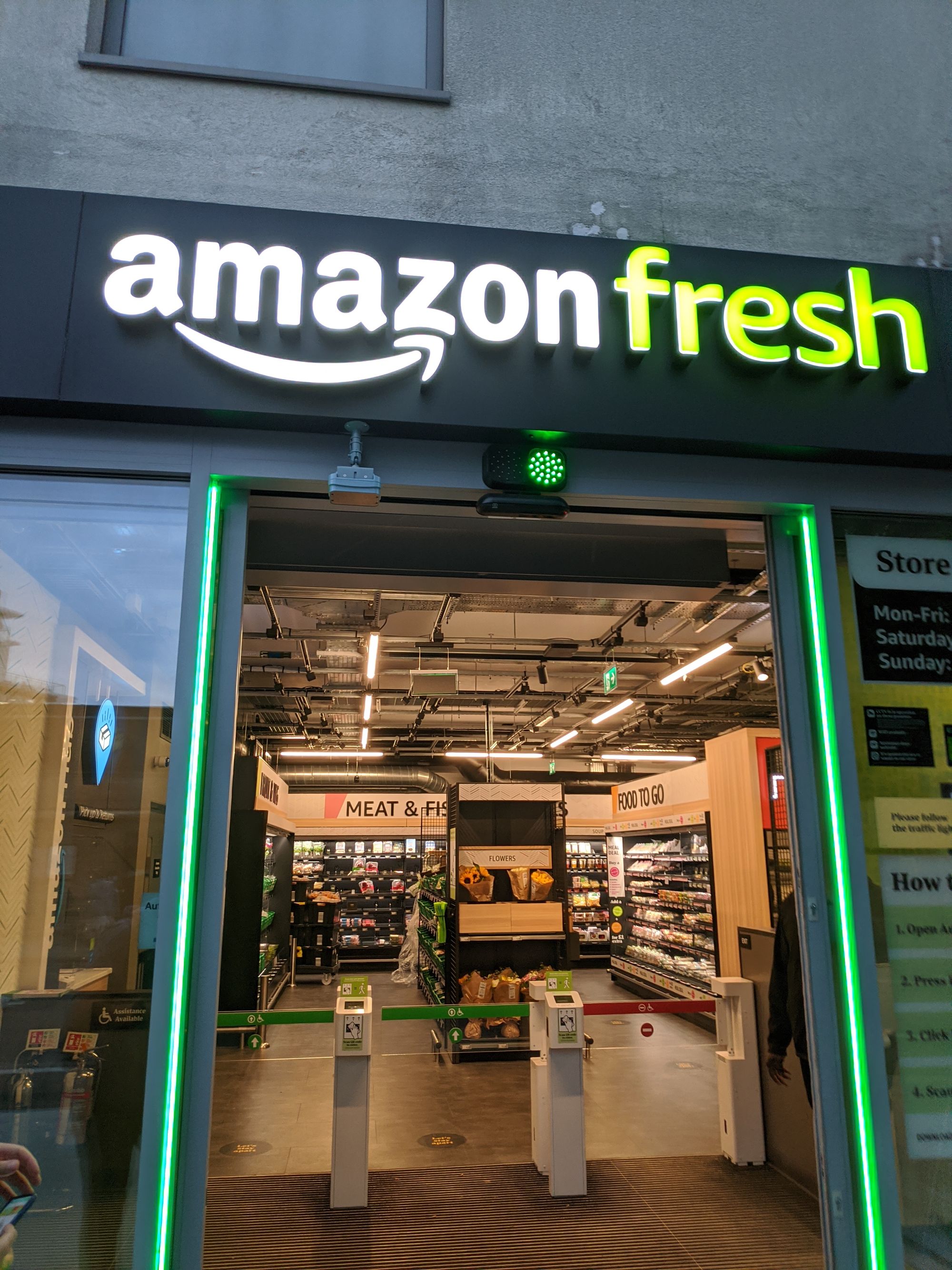TLDR: Computers watch you get groceries. Actually not that boring and super profitable. Get what you need and get out. Be intentional about whether you want to wander and explore.

Each time I buy groceries, I get reminded how the world increasingly runs on abstract non-linear pattern recognition systems. With the amazon fresh store near Camden Town, London, the computer vision systems will track your movement through the store and the data collected could be sold to other retailers such as Tesco or Sainsbury's.
I first experimented with the optimistic point of view, considering supermarkets only make small percentages of profit each year. As such, more efficient organisation of products for consumers will allow supermarkets to cut unnecessary stock and essentialise, potentially leading to reduction of prices. However, on the pessimistic view, supermarkets will be able to leverage psychology principles that large tech companies have employed to 'guide' users in decision making. We have to trust that supermarkets will use the data in a way that benefits the consumer's health in addition to benefitting them financially - quite a fine line.
From observation, people are wired to prefer the concrete, tangible objects. Being able to abstract upon the systems have been proven with the rise of machine learning and recommendation systems (i.e Instagram, Netflix) to pay greatly in both good and bad ways in the long term.
What can you do to avoid being controlled by those that employ 'supercomputers' that can understand you 100x better than yourself?
Do not engage it.
When going into the supermarket, only think about what you need. Write a grocery list. Get what you need and get out! At the Tesco near me, the donut stand is placed at the doors, I make it a rule to walk as quickly as socially acceptable with tunnel vision toward what I need. This way I don't even realise what has been put up.
Some supermarkets periodically move things around to get customers to spend more time in the store. This is only a problem if you don't ask the staff for the location of your desired good.
These principles can be applied to any store or e-commerce site. The best strategy is to minimise the time you spend on the site.
Obviously, there requires a balance. Sometimes, you want something new and fresh. At these times, the customer profile predictions, wandering journeys through stores and recommendations work tremendously well for the customer. However, it has to be an intentional choice to engage the forces much stronger than you.
I hope this will help you take back control.
Happy shopping!






